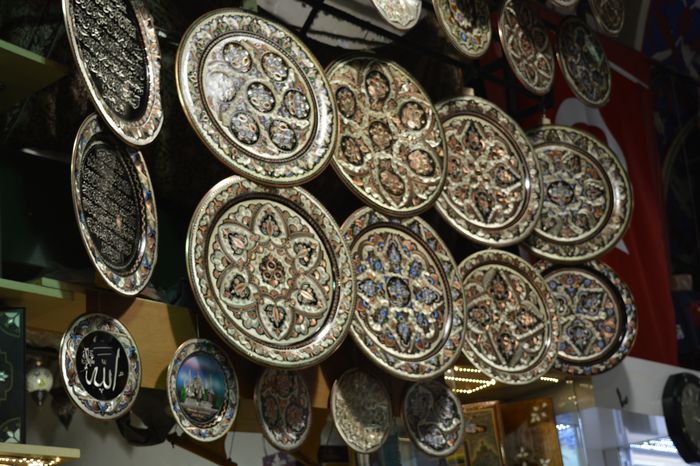Religious Devotion and Political Violence
The Missionaries’ Harsh Judgment
Christian missionaries working in the Ottoman Empire held extremely negative views of Sultan Abdul Hamid II. These religious workers, who had direct contact with Christian communities throughout the empire, saw the Sultan as a dangerous enemy of their faith and their people. Their assessment was based on years of witnessing persecution and violence against Christian minorities.
The missionaries described Abdul Hamid as “a bad Sultan, but a good Muslim.” This complicated judgment reflected their recognition that while he was a devout follower of Islam, his religious devotion had terrible consequences for non-Muslims in his empire. They saw his deep Islamic faith not as a virtue, but as a source of dangerous extremism Ephesus Day Trips.
According to the missionaries, the Sultan’s fanaticism was equal to that of any fakir in his realm. Fakirs were Islamic holy men known for their extreme religious devotion and sometimes radical behavior. By comparing the Sultan to these religious extremists, the missionaries were saying that he had allowed his faith to become a form of dangerous obsession that blinded him to basic human decency.
Accusations of Systematic Persecution
The missionaries held the Sultan personally responsible for the systematic persecution of Christians throughout the Ottoman Empire. This persecution took many forms: discriminatory laws, unfair taxation, restrictions on church construction and repair, and limitations on Christian education and religious practice. These policies made life increasingly difficult for the empire’s large Christian population.
Most seriously, the missionaries accused the Sultan of being directly responsible for the massacre of Armenians. These horrific events, which occurred in the 1890s, resulted in the deaths of hundreds of thousands of Armenian Christians. The missionaries claimed that these massacres were not random outbursts of violence, but organized campaigns of extermination ordered by the Sultan himself The Insider’s Revenge.
The accusation that “the orders were given by him personally” was particularly damning. This meant that the missionaries believed the Sultan had directly commanded the killings, rather than simply failing to prevent them. If true, this would make him guilty of what we would now call genocide – the deliberate attempt to destroy an entire ethnic and religious group.
These accusations were based on the missionaries’ direct observations and their connections with Christian communities throughout the empire. They had seen the results of the violence firsthand, heard testimonies from survivors, and witnessed the systematic nature of the persecution. Their position as religious workers gave them credibility when they spoke about religious persecution.
A Different Perspective from Western Diplomats
However, not everyone who knew the Sultan personally shared the missionaries’ harsh assessment. Americans and Englishmen who regularly visited the palace and had personal acquaintance with His Majesty offered a more complex view of his character. These individuals, who were often diplomats, businessmen, or other officials, had different types of interactions with the Sultan.
These Western visitors insisted that the Sultan had many good traits and positive qualities. They saw him as intelligent, cultured, and capable of great charm and courtesy. In their personal interactions with him, he appeared to be a reasonable and even admirable man. This created a puzzling contradiction with the image of a ruthless persecutor of Christians.
The most interesting part of their assessment was their belief that “he would not be a bad man at all if he lived under different conditions.” This suggested that they saw the Sultan’s worst behaviors as products of his circumstances rather than his fundamental character. They believed that the pressures and paranoia of ruling a declining empire had corrupted what might otherwise have been a decent person.
This perspective implied that the Sultan’s violence and persecution were not the result of inherent evil, but rather the consequence of fear, political pressure, and the impossible situation of trying to hold together a multi-ethnic, multi-religious empire in an age of nationalism and foreign interference.
The Power of Personal Connections
The Sultan’s treatment of distinguished Western visitors revealed another side of his personality. When General Horace Porter, the American ambassador to France, visited Turkey, he received an extraordinarily warm welcome. This exceptional treatment was not random – it was based on the Sultan’s respect for General Porter’s former boss, Ulysses S. Grant.
General Porter had served as Grant’s private secretary during Grant’s presidency, and this connection was enough to earn him the Sultan’s highest honors. The Sultan apparently had great admiration for Grant, possibly because of Grant’s military achievements or his role in American history. This admiration extended to anyone who had been associated with the former president.
The Sultan’s response to learning about Porter’s connection to Grant was immediate and generous. He provided Porter with a carriage from the imperial stable, which was a mark of great honor. An aide-de-camp from the Yildiz Kiosk was assigned to accompany Porter, showing that the Sultan was treating him as a very important guest. A military escort was also provided, ensuring Porter’s safety and dignity during his visit.
Royal Hospitality at Its Finest
The Sultan’s hospitality toward General Porter went far beyond normal diplomatic courtesy. Orders were given that all doors in Constantinople should be thrown open to him, meaning that he would have access to places and people that were normally off-limits to foreign visitors. This was an extraordinary privilege that few travelers had ever received.
The extent of this welcome was remarkable by any standard. Porter was given access to the highest levels of Ottoman society and government. He could visit palaces, government buildings, military facilities, and other important locations that were usually closed to outsiders. This level of access showed the Sultan’s genuine desire to honor his distinguished guest.
Before Porter left the city, the Sultan hosted a dinner in his honor at the palace. This was one of the highest honors the Sultan could bestow on a foreign visitor. Palace dinners were elaborate affairs that showcased the wealth and culture of the Ottoman court. The invitation to such an event demonstrated the Sultan’s personal respect for Porter and his desire to create a memorable experience.
An Unprecedented Honor for Mrs. Porter
The Sultan’s generosity extended even to Porter’s wife, showing his attention to diplomatic protocol and his desire to honor the entire family. He decorated Mrs. Porter with one of his most important orders, which was an extremely rare honor for a foreign woman. This decoration was not just a piece of jewelry – it was a formal recognition of her status and her husband’s importance.
The fact that the Sultan chose one of his “most important orders” for Mrs. Porter showed that this was not a routine diplomatic gesture. He could have given her a lesser decoration, but he chose to honor her with something truly significant. This decision reflected his genuine desire to show respect for the Porter family and, by extension, for General Grant’s memory.
This honor was particularly meaningful because it was unusual for Ottoman rulers to recognize foreign women in this way. The Sultan’s traditional Islamic culture usually limited such honors to men, but he made an exception in this case. This showed his willingness to adapt his customs when he wanted to show special respect to important guests.
The Complexity of Character
The contrast between the Sultan’s treatment of General Porter and his alleged persecution of Christians reveals the complexity of his character. On one hand, he could be gracious, generous, and respectful to people he admired. On the other hand, he was accused of ordering the deaths of thousands of innocent people.
This contradiction suggests that the Sultan’s behavior was heavily influenced by how he viewed different groups of people. He seemed to have great respect for Western military leaders and diplomats, but little concern for the welfare of Christian minorities in his own empire. His actions were not consistent with a single moral standard, but rather varied depending on the political and personal context.
The missionaries and the Western diplomats were probably both right in their assessments, but they were observing different aspects of the Sultan’s personality. The missionaries saw him as a ruler dealing with internal challenges and religious minorities. The diplomats saw him as a host entertaining honored foreign guests. These different contexts brought out very different sides of his character.







